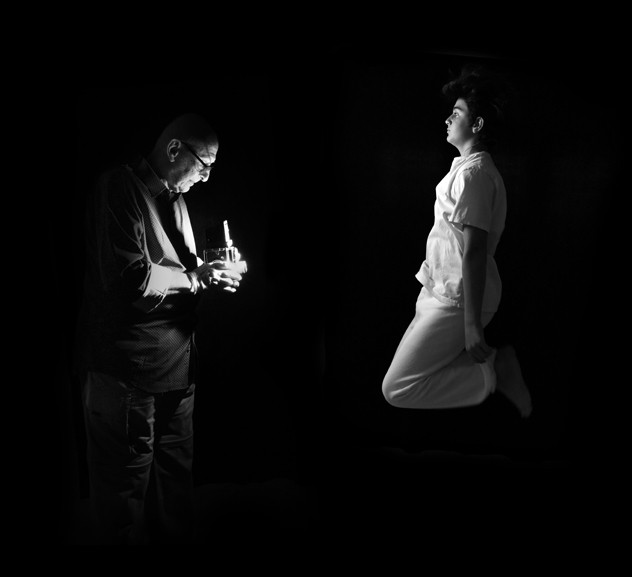By B.A. Van Sise
Laszlo Selly doesn’t like my photographs, as well he shouldn’t. He, too, has been making portraits of survivors in his last few years, many from the community around his Florida home.
His photographs are different. “They’re raw,” he says. “I want people to see the trauma. I don’t hide anything. The way I feel about these people, they’re all beautiful the way they are. I want the viewer to think what memories lie behind those eyes. I want people to see the bridges that these people, in their dreams, have to cross every night.”
He left Hungary in 1956; he’d been a darkroom printer back there, and took up the same work here, eventually making his way up to becoming a food photographer running his own studio, shooting mostly food advertising on a big Sinar view camera on rails. He built a laundry list of clients—General Foods, Nabisco, cereal companies left and right, Toblerone. Chances are that for a half century, if you opened a magazine and saw food, it was because Laszlo showed it to you.
He loved the process, the creation.
Today he’s still at it, though this time he’s thinking not about the food we see, but the people we might forget. He photographs the survivors at their homes, in the busy setting of their lives, under the fluorescent lamps of their ceilings, their every wrinkle and crevice on display, their faces maps of the world.
His photographs are the opposite of the style here; some might think them cruel. They are not. “The Holocaust was not a beauty contest,” he reminds me, “I want the viewer to make eye contact with the Holocaust. These are real people and people need to see their realness.”

“The survivors,” he says, “there’s less and less of them every day. It’s important their stories are told and they’re remembered.” He muses that he might not be a product photographer, anymore, but a photographer, perhaps, of religion, or a photographer of nature.
“Look,” he says, pointing. “I am not a religious Jew. I like my bacon crispy. But I think if there is a God, God is everywhere. God is in the wind. God is in the trees. God is nature. Nature is unforgiving. Nature is unkind.”